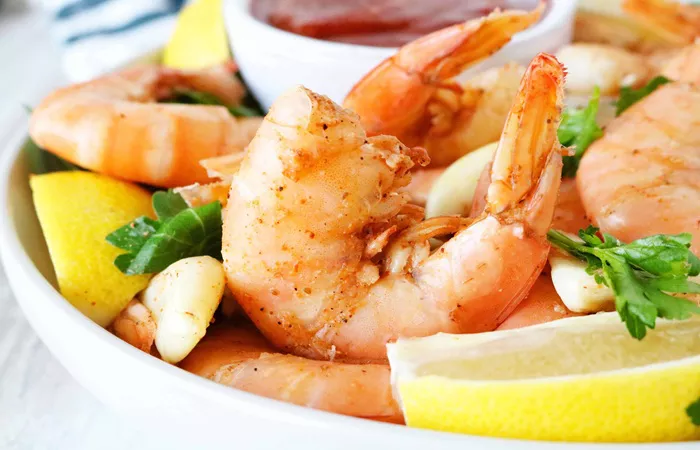Shrimp is a popular seafood that many people enjoy around the world. It is known for its delicious taste and versatility in various dishes. But the question remains: is shrimp healthy to eat every day? In this article, we will examine the health benefits and potential risks of eating shrimp regularly. By understanding its nutritional content, we can determine whether shrimp is a good choice for your daily diet.
What Makes Shrimp Nutritious?
Shrimp is a low-calorie food packed with high-quality protein. It is rich in essential nutrients like vitamins and minerals. Some of the key nutrients found in shrimp include:
- Protein: Shrimp is an excellent source of lean protein.
- Omega-3 fatty acids: These healthy fats are important for heart health.
- Vitamins and minerals: Shrimp contains B vitamins, such as B12, and minerals like iodine and selenium.
- Antioxidants: It has a small amount of antioxidants like astaxanthin, which can support overall health.
Health Benefits of Shrimp
Eating shrimp can offer several health benefits, especially when included as part of a balanced diet. Here are some of the key advantages:
Supports heart health: The omega-3 fatty acids in shrimp can help reduce inflammation and promote heart health.
Improves brain function: Omega-3s are also beneficial for brain function and cognitive health.
Promotes muscle growth: The high-quality protein in shrimp supports muscle repair and growth.
Boosts immunity: Shrimp’s vitamins and minerals, like selenium and zinc, are essential for a strong immune system.
Potential Risks of Eating Shrimp Every Day
While shrimp is a nutritious food, there are some potential risks associated with eating it every day. These risks may depend on the quality of the shrimp and the overall diet.
1. Cholesterol Levels
Shrimp is high in cholesterol, which may be a concern for some individuals. A typical serving of shrimp contains about 200 milligrams of cholesterol, which is close to the daily recommended intake. However, studies have shown that dietary cholesterol has less impact on blood cholesterol levels than previously thought. Still, it’s important for individuals with high cholesterol or heart disease to consult with a healthcare provider before eating shrimp every day.
2. Heavy Metals and Contaminants
Like many seafoods, shrimp can contain trace amounts of heavy metals, such as mercury, and other environmental contaminants. If shrimp is sourced from polluted waters, these contaminants can pose a health risk. It’s crucial to choose sustainably sourced shrimp to minimize this risk. You can also opt for wild-caught shrimp, which may have lower levels of contaminants compared to farmed shrimp.
3. Allergies
Shrimp is one of the most common food allergens, especially in children. Some people may experience allergic reactions to shrimp, including symptoms like itching, swelling, and difficulty breathing. If you or your child have a seafood allergy, it’s important to avoid shrimp altogether.
How Often Should You Eat Shrimp?
While shrimp can be part of a healthy diet, moderation is key. Eating shrimp several times a week is generally safe for most people. However, eating shrimp every day might not be ideal, especially if you have concerns about cholesterol or environmental contaminants. A balanced diet that includes a variety of proteins, such as fish, poultry, beans, and nuts, is the best approach to ensure you’re getting all the nutrients your body needs.
Incorporating Shrimp into a Healthy Diet
If you enjoy shrimp and want to include it in your diet, here are some tips for making it a healthy choice:
Choose wild-caught shrimp: This can help reduce the risk of contaminants and support sustainable seafood practices.
Balance your meals: Pair shrimp with plenty of vegetables, whole grains, and healthy fats to create a well-rounded meal.
Avoid excessive butter or oil: Shrimp is naturally low in fat, so avoid cooking it in large amounts of butter or unhealthy oils.
Conclusion
In conclusion, shrimp is a nutritious food that offers many health benefits, including high-quality protein, omega-3 fatty acids, and essential vitamins and minerals. However, eating shrimp every day may not be the best choice due to concerns about cholesterol, heavy metals, and allergies. Moderation is key, and it’s important to incorporate a variety of protein sources into your diet for optimal health.
Related topics:


